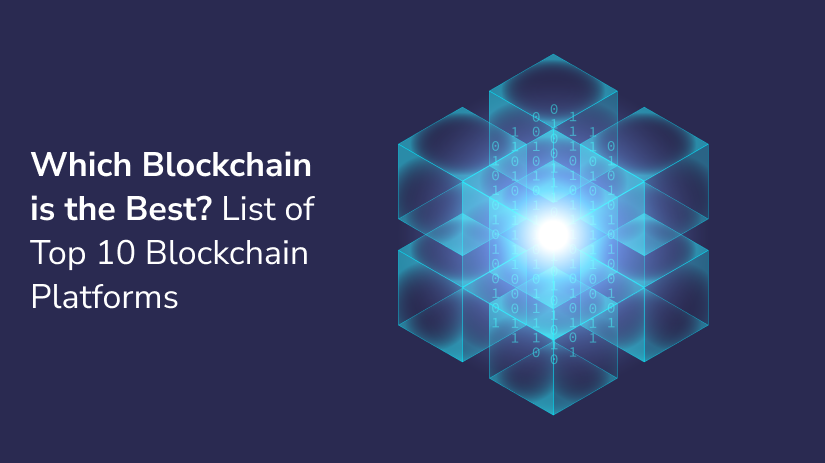In the ever-evolving landscape of blockchain technology, choosing the right platform can be a daunting task. With numerous options available, each offering unique features and capabilities, it’s essential to understand the strengths and weaknesses of each.
Whether you’re a developer looking to build decentralized applications or a business seeking to leverage blockchain for various use cases, selecting the best blockchain platform is crucial.
In this blog post, we’ll delve into the top 10 blockchain platforms, highlighting their key features and benefits.
Let’s Start!!
Connect with us for Fintech Development Needs
Trusted by companies like Plaid, Yodlee, Codat.
Ethereum
As one of the most popular blockchain platforms, Ethereum is renowned for its smart contract functionality, enabling developers to create decentralized applications (DApps) and execute complex transactions. Its large developer community and robust ecosystem make it a preferred choice for many projects.
Bitcoin
The pioneer of blockchain technology, Bitcoin remains a dominant force in the cryptocurrency space. While primarily used for peer-to-peer transactions and store of value, Bitcoin’s simplicity and security make it a reliable choice for various applications.
Binance Smart Chain (BSC)
Developed by the leading cryptocurrency exchange Binance, Binance Smart Chain offers fast and low-cost transactions, making it ideal for decentralized finance (DeFi) applications. Its seamless integration with the Binance ecosystem provides users with access to a wide range of services.
Cardano
Known for its focus on scalability, interoperability, and sustainability, Cardano aims to provide a secure and scalable platform for building DApps and smart contracts. With a strong emphasis on academic research and peer-reviewed development, Cardano offers a promising option for blockchain enthusiasts.
Solana
Solana stands out for its high throughput and low latency, making it suitable for applications requiring fast transaction speeds and high performance. Its unique architecture, featuring a combination of proof-of-stake (PoS) and proof-of-history (PoH) consensus mechanisms, sets it apart from other blockchain platforms.
Polkadot
Built with interoperability in mind, Polkadot enables different blockchains to seamlessly connect and share information, fostering collaboration and innovation across the ecosystem. Its scalable and customizable framework offers flexibility for developers to build diverse applications.
Tezos
With a focus on formal verification and on-chain governance, Tezos provides a secure and upgradable platform for building smart contracts and DApps. Its self-amending protocol allows for seamless upgrades without requiring hard forks, ensuring network stability and continuity.
Chainlink
While not a standalone blockchain platform, Chainlink is a decentralized oracle network that facilitates secure and reliable data transfer between smart contracts and external sources. Its integration with various blockchain platforms, including Ethereum and Binance Smart Chain, enhances its capabilities by enabling access to real-world data.
EOSIO
Designed for high-performance DApps and enterprise solutions, EOSIO offers scalability, flexibility, and governance features tailored to meet the needs of businesses and developers. Its delegated proof-of-stake (DPoS) consensus mechanism ensures fast transaction speeds and low fees.
Tron
Positioned as a high-throughput blockchain platform, Tron focuses on enabling decentralized entertainment and content-sharing applications. With its acquisition of BitTorrent and partnerships with prominent companies, Tron aims to disrupt the entertainment industry by decentralizing content distribution.
Final Words
Incorporating blockchain technology into your projects can enhance security, transparency, and efficiency. Whether you’re interested in building decentralized applications, facilitating secure transactions, or exploring new business models, the right blockchain platform can unlock a world of possibilities.
By carefully evaluating the features, scalability, and community support of each platform, you can make an informed decision that aligns with your goals and requirements.
Remember, integrating third-party services like Coinbase API, BlockCypher API, and Binance integration can further enhance the functionality and capabilities of your blockchain applications.
These APIs provide access to additional services, data, and liquidity, empowering developers to create more robust and feature-rich solutions.
In conclusion, while there isn’t a one-size-fits-all answer to the question of which blockchain is the best, understanding the strengths and weaknesses of the top 10 blockchain platforms can help you make an informed decision based on your specific needs and objectives.
Whether you prioritize scalability, security, or interoperability, there’s a blockchain platform out there to suit your requirements and drive innovation in your projects.
Happy Blockchain Development!!
Connect with us for Fintech Development Needs
Trusted by companies like Plaid, Yodlee, Codat.





